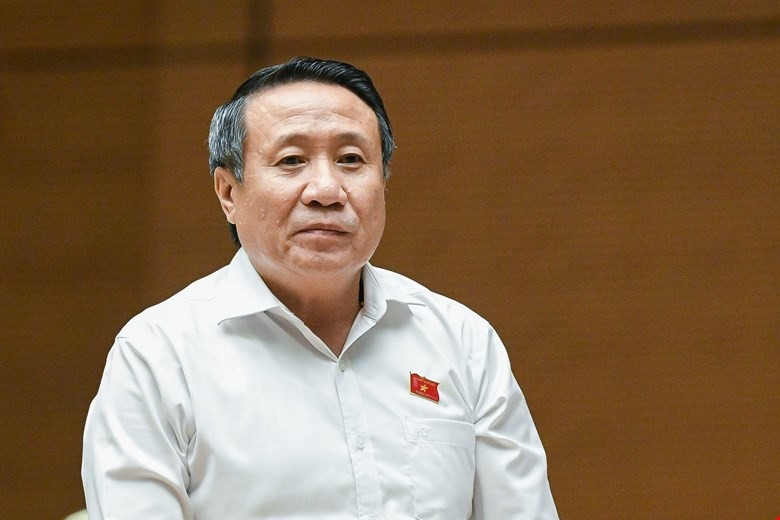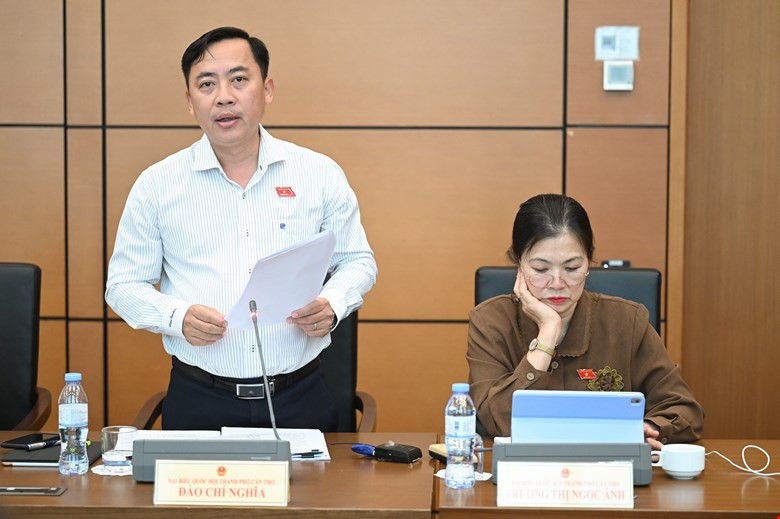Allowing entrepreneurs to remain out on bail during criminal proceedings could give them the opportunity to rectify damages and continue leading their businesses. Prolonged detention, some lawmakers argue, can jeopardize large companies and undermine their competitiveness.
Business leaders on bail could remedy losses

As part of the draft National Assembly Resolution on special policies to develop the private sector, Clause 4 of Article 5 specifies that legal violations should not be retroactively applied in ways that harm enterprises, business households, or individual business operators.
During a National Assembly discussion on May 15, Deputy Ha Sy Dong (Quang Tri) proposed including provisions to prioritize bail in criminal proceedings for businesspeople, only resorting to detention in truly necessary cases.
“In many cases, if business leaders are allowed bail, they can actively compensate for damages or continue operating their businesses. Extended detention might resolve a minor criminal case, but it could severely damage a large enterprise and diminish its global competitiveness,” Dong stated.
Regarding a clause that allows businesses to voluntarily address damage and avoid criminal liability in certain situations, Deputy Dao Chi Nghia (Can Tho) warned of potential abuse. He suggested setting strict time limits for remedying violations to prevent prolonged unresolved cases.
He expressed concern that this provision might overlook serious offenses like large-scale tax evasion or fraud, weakening legal deterrence.
Clause 8 of Article 5 also addresses the classification of legally acquired assets versus those linked to illegal activities. Nghia pointed out that distinguishing between the two, especially in major economic crimes, is extremely complex.
“We need clear standards for identifying legal and illicit assets, along with enhanced investigative capabilities and interim supervision mechanisms to prevent asset dissipation while protecting legitimate business rights,” he added.
Commercial mediation should be a priority

On bankruptcy procedures, Nghia called for applying modern technology, particularly online processing, to expedite the process.
Deputy Dong supported streamlined bankruptcy proceedings but also urged inclusion of regulations to resolve commercial disputes, which often hinder private sector growth.
He emphasized the need for strict adherence to legal timelines in adjudicating and enforcing commercial cases. Delays in case resolution and enforcement, he said, should be grounds for reviewing and holding officials accountable.
“Businesses are extremely frustrated by the long processing times in commercial disputes. We must aim to increase the civil enforcement success rate to over 80% for executable cases,” Dong noted.
Deputy Le Xuan Than (Khanh Hoa) added that in a market economy, disputes are inevitable. Therefore, mechanisms for commercial mediation, arbitration, and specialized courts must be included in the draft to foster a transparent legal environment.
“Mediation should be the first step. If it fails, parties can then take the case to court or commercial arbitration. These mechanisms must be institutionalized in the law,” Than suggested.
Regarding Clause 3 of Article 4, which calls for strict action against abuse of inspections to harass businesses, Deputy Nguyen Manh Hung (Can Tho) proposed stronger language: such abuse should be explicitly "prohibited."
Deputy Dong also recommended that during inspections, state agencies should not require businesses to provide documents that the same agencies have issued or which are already publicly available or stored in accessible national databases.
He further proposed that companies should be able to cite prior official conclusions on similar cases to defend their rights during inspections or licensing. If state agencies reach a different conclusion in a new case, they must explain the reasoning, helping prevent arbitrary decisions.
Tuan Nguyen